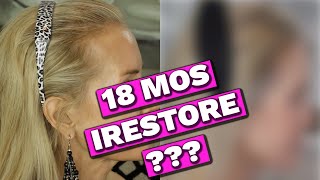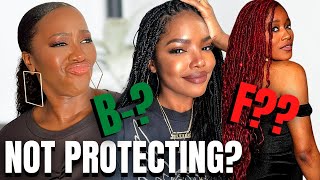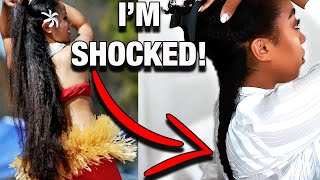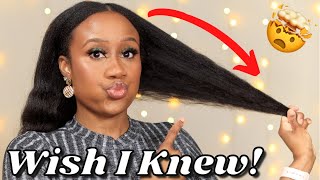Can Kelp Really Help With Growing Healthy Hair?
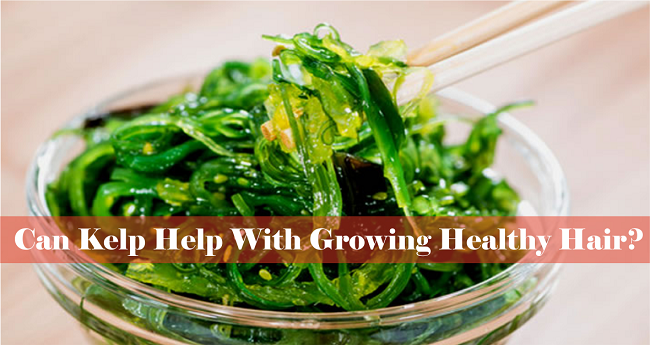
There’s no “trick” to growing healthy long hair. It all comes down to the health of your body. If you’ve heard of people using kelp supplements* to aid in their hair growth, then you’re familiar with stories of folks having success in reversing hair thinning and baldness. But some are still skeptical about whether it will work for them.
The truth is it all comes down to what’s actually causing your hair loss. It’s important to note that no food or herb targets hair growth directly, rather it’s an indirect action of nourishing your system. So before you can understand how kelp actually helps with healthy hair growth, you first have to understand what causes stunted growth and hair loss in the first place.
What’s slowing down your hair growth?
There are many factors to look into when you’re dealing with hair loss. There are various medical conditions, age, medications and hormonal factors that can all play a part in balding.
If you are reaching 50 and beyond, it’s common to witness slowed hair growth. This is because your hormones are starting to change and your body requires more nutrition to sustain itself — especially if you aren’t currently taking in a lot of nutrients.
Hormonal imbalances that stem from pregnancy, childbirth, birth control pills or menopause can also lead to hair loss. Then there are medical factors like thyroid disorders and anemia.
These are the most common causes, which all point to an imbalance in the body and lack of nutrition. And this is why kelp and other seaweeds can actually help to reverse hair growth issues.
How kelp can help with hair growth
Kelp is a seaweed that is filled with all sorts of nutrients, including iron*, B vitamins, iodine and magnesium* — all minerals that the body needs to grow healthy hair. Taking kelp regularly can help to boost your levels of these vitamins and minerals, helping to make your hair less dry and dull looking.
If you’re not familiar, B vitamins can help to promote hair growth. When you consume them, they work by encouraging cell division and growth.
A lot of Americans have a diet that’s rich in calcium, but low in magnesium*. It’s important for calcium levels to be regulated in the body.

Kelp
Since kelp is rich in magnesium*, it helps to keep calcium balanced, so to prevent hair loss. Zinc deficiency can also play a role in hair thinning, which kelp too has plenty of.
Zinc* helps with building new cells, balancing hormones and help your body make use of protein. In males, it can help with balding, since zinc* is needed for DHT regulation (male hormone).
Those who have thyroid issues may witness hair loss, which is one of the top reasons why they turn to kelp — it’s packed with iodine, which is excellent for thyroid health and reversing hair loss effects.
There are some folks who struggle with hair thinning without having any known health conditions. This is mainly due to l-lycine deficiency, an amino acid. Once again, kelp saves the day by providing your body with this amino acid.
Adding kelp to your daily regimens
There are different ways you can use sea kelp to help with your health and hair growth. You can either buy the powder form of it and add it to your smoothies, or even add it to your soups. The Japanese like to add it to their miso soup and sushi.
I’ve personally used kelp in smoothies and have also purchased it in flake form and sprinkled it on top of my dinnertime veggies. The other option for taking it internally is in pill form. If you decide to go with kelp supplements*, make sure that it is 100% kelp.
Some people even use it externally, adding it to their hair growth treatments, shampoos and conditioners. It’s believed that it strengthens, nourishes and protects your hair from damage caused by pollution. This is because it is high in laminaria angustata, which can help to thicken hair and promote growth in your hair follicle’s outer sheath.
However, in order to get the full effects of kelp, it’s best to take it internally. You can mix it with other nutritious seaweeds like I do, such as bladderwrack, Irish moss, dulse and nori.
Just make sure that you are buying from a reputable seller that offers non-irradiated forms of the seaweeds. I only purchase 100% powders, never mixed. I mix them myself once I receive the packages.
Since I changed my diet in 2008, my intake of seaweeds has increased, which is why I believe I saw such fast growth with my own hair.
Even my husband, who was having balding in the middle of his head, saw growth after our diet change. I’m no skeptic when it comes to the abilities of kelp and other seaweeds to promote hair growth, especially if you have deficiencies and glandular disorders.
Are you currently dealing with stunted hair growth or hair thinning? Have you tried kelp or other seaweeds?

